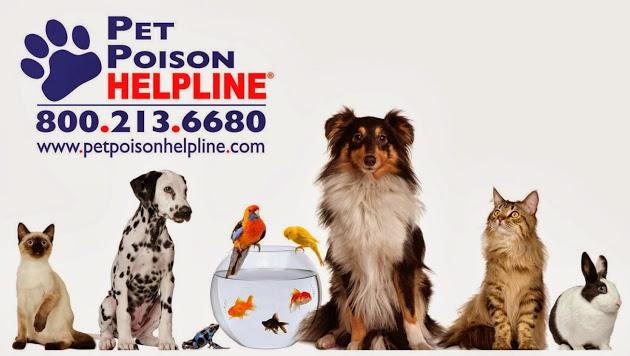Pet Poisons
posted: Apr. 22, 2019.

Pet Poisons
Many household items, such as cleaners, plants, and even human food, can be toxic to our pets. If you suspect your pet has ingested a toxin, please call a veterinarian immediately. The sooner you start treatment (if indicated), the better the prognosis.
Top Ten Pet Poisons (most commonly reported pet toxins by species according to the Pet Poison Helpline)
DOGS:
-
Chocolate
-
Mouse and Rat Poisons (rodenticides)
-
Anti-inflammatory medications
-
Xylitol (sugar-free gum & more)
-
Grapes & Raisins
-
Antidepressant Medications
-
Acetaminophen (e.g., Tylenol)
-
Vitamin D Overdose
-
Stimulant Medications (e.g., for ADD/ADHD)
-
Fertilizers
CATS:
-
Lilies (Lilium species)
-
Spot-on flea/tick medication for dogs
-
Household Cleaners
-
Antidepressant Medications
-
Essential Oils
-
Anti-inflammatory Medications
-
Mouse & Rat Poisons (rodenticides)
-
Stimulant Medications (e.g., for ADD/ADHD)
-
Onions & Garlic
-
Vitamin D Overdose
Springtime Toxins
As the weather starts to get warmer, keep an eye out for these seasonal potential toxins. Make sure to pet proof your garden!
-
Tulips
-
Hyacinth
-
Daffodils
-
Lilies (especially Easter Lilies for cats)
-
Crocus
-
Lily of the Valley
-
Fertilizers
The following links contain information on common pet toxins:
https://www.petpoisonhelpline.com/
https://blog.homesalive.ca/dangerous-garden-plants-for-dogs
https://pethelpful.com/dogs/Dangerous-foods-that-can-sicken-or-kill-your-dog-cat-or-other-pet
https://dogtime.com/dog-health/general/4658-10-common-toxins-for-dogs-list